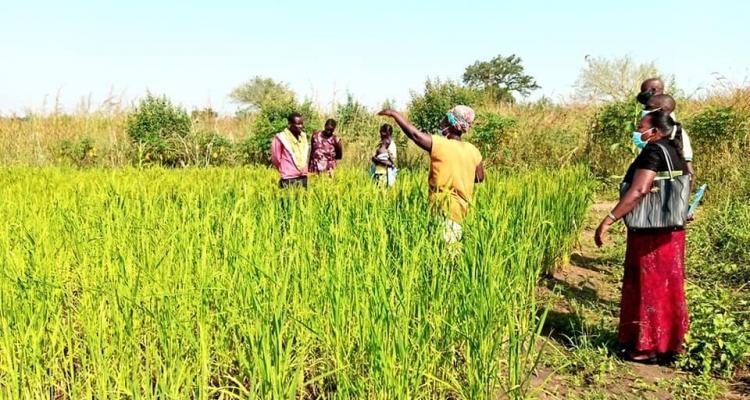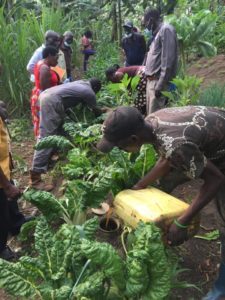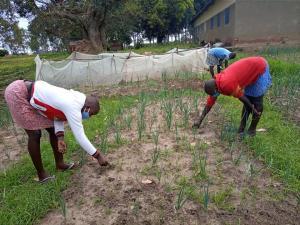
When one has had a chance to visit the rural areas or villages, you would without effort notice that farming is the main economic activity for many dwellers. In Malawi alone, though characterized by low levels of input and low output levels, small-scale farmers cultivate about 4.5 million hectares of land. With the capacity to produce and ultimately feed the nation, the effects of the COVID19 pandemic has resulted in the drastic weakening of the food system, the estimated 2 million farming families have been excluded from the agri-economy of Malawi.
With the new reality of the pandemic, the smallholder farmers have faced an exacerbation of pre-existing challenges which range from lack of access to land, limited access to credit facilities to purchase equipment, and having little knowledge about advanced technologies and tools that can assist them adapt to climate change and improve agricultural production. This is why the Southern Africa Trust (the Trust) has designed a series of interventions tailored specifically working with farmers associations to facilitate dialogues that help the efforts of governments in the southern Africa region in uplifting the plight of smallholder farmers. This is one way in which the organisation is fulfilling its mandate of uplifting the living realities of the marginalised and vulnerable people across the 16 SADC countries. 
To fulfil its work, the Trust is collaborating with numerous civil society organisations of different sectors with the goal supporting small scale farmers in tackling the challenges they face while addressing societal obstacles that impact them such as climate change.
One of the key challenges that smallholder farmers continue to face during the pandemic is the lack of access to financing in order increase agricultural production to feed communities that were under lockdown regulations. As an institutional policy, banks and other lenders do not finance smallholder farmers as they are regarded as a high risk due to being unable to provide security for the loans.
Through policy dialogues, the Farmers Association and Southern Africa Trust have profiled the challenge of smallholders to access funding; calling for soft loans that are easily manageable to be made available to help the smallholder farmers to farm and trade in what is an increasingly adverse economic environment. As a result of this, small scale farmers are now able to improve on their farming technologies and increase input, something which assures increased returns in terms of harvest.
Through the commissioning of extensive research, the Southern Africa Trust has developed a series of policy briefs which have been published and made available to policy makers across SADC governance structures. One such research was commissioned in 2020 in response to the observed impact of the pandemic, was titled “Accelerating the Goal of Food Security For all in SADC by 2025”. In researching for this policy brief, the study found that land should be considered as a key resource for agricultural production recommending for the implementation of fiscal policies that reduce inequalities in the distribution of assets and incomes, so that the benefits of growth are used for the wellbeing of all communities.

Writing about women farmers recently, Policy and Programmes Manager for the Trust, Christabel Phiri, called for increased support to farmer’s union and associations. She remarks, “Women farmers who are members of cooperatives or farmers’ unions and associations continue to express satisfaction with some of the benefits of belonging to these platforms. As members of these associations, women farmers have access to farm inputs like certified seed, capacity building skills, marketing information and sometimes ready markets for their produce.”
Phiri believes African women smallholder farmers can achieve increased agricultural production with the right investment and policies. The success of the smallholder farmers will eventually result in significant benefits to families, communities and African countries.
The long term recovery from the effects of the pandemic in Malawi reply heavily on the production capacity of smallholder farmers. National food security, cross border trade activity, migration employment and stimulus to day to day economy will be much the weaker with a weakened farming sector. The implementation and support of policy recommendations will enable an upswing as Malawians work together to build back better.














